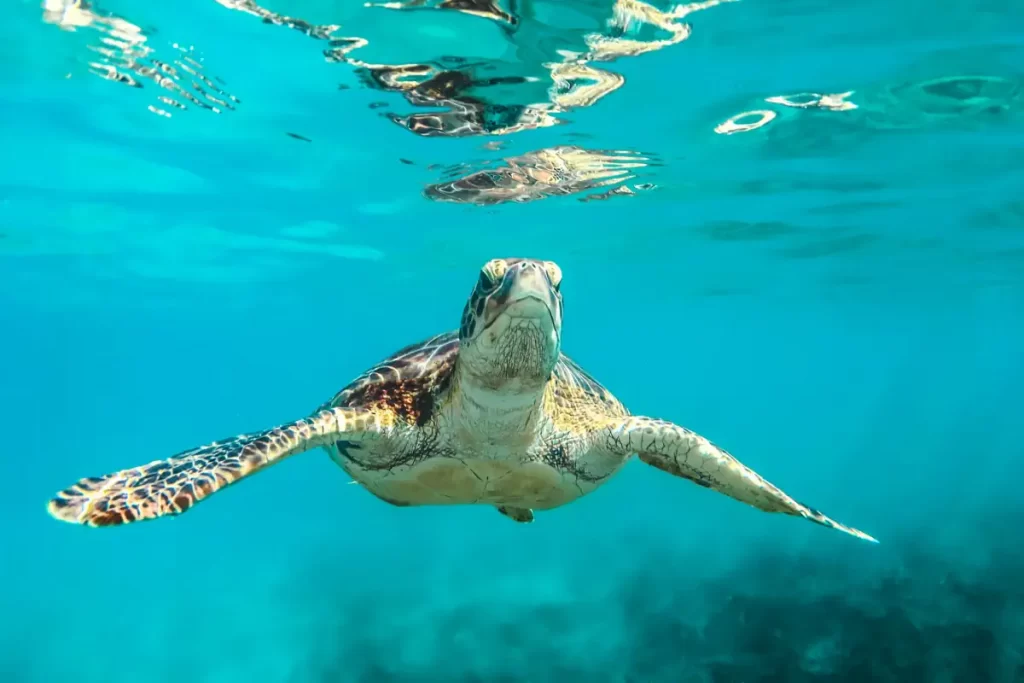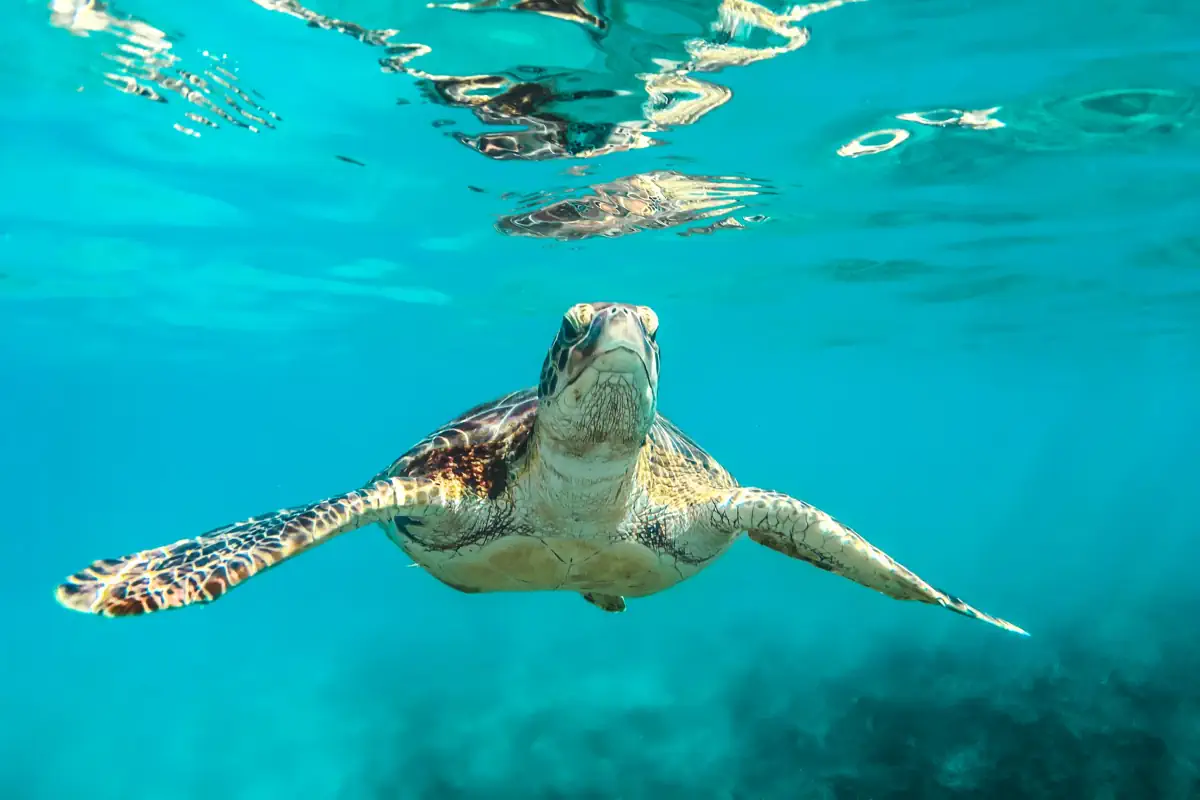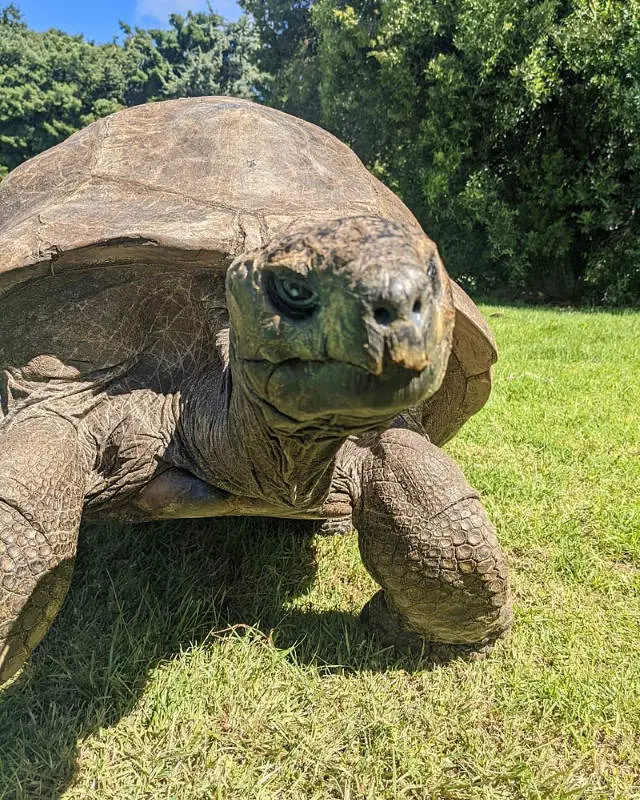Turtles are reptiles, and like all reptile species, they’ve been around for a long time: the earliest fossils suggest that the first turtles evolved in the Late Permian Epoch, just before the Triassic period (251.9-201.3 million years ago, or Mya). For more than 200 million years, the body structure of turtles has not undergone any significant changes. Here are 10 amazing turtle facts.
1. Turtles are vertebrate creatures
They have a skeletal system hidden in their body inside the hard shell.
The shells of turtles consist of about 50 bones. The ribs, shoulder bones, and vertebrae are boiling together to form this hard shell.
2. Turtles hibernate
Some tortoises hibernate like bears and snakes. They spend the winter burying themselves underground all year.
Sea turtles, on the other hand, dive into the depths of the sea and wait there for the summer to come.
3. They can live for a long time
Many turtles can live for several decades if housed in the right temperature and humidity. When it comes to keeping turtles at home, the longevity of turtles is an attractive feature.
They live up to 150 years.
4. Turtles reproduce by the method of spawning
Unlike many sea creatures, turtles come ashore to lay eggs, dig a hole for their eggs, and lay their eggs in that hole.
After laying their eggs, they do not come back to grow or feed, they do not become mothers.
The turtles that hatch from the eggs immediately run to the water and try to survive on their own.
5. They don’t have teeth
Although turtles break down hard objects, they don’t have teeth. The tooth was replaced by a jaw consisting of a hard cartilaginous structure. With this hard jaw, they break down their food.
Considering that they feed on hard crustaceans in the sea, they have a fairly strong mouth structure.
Whereas living turtles are toothless, many ancestral forms possess teeth.
6. Turtles are generally omnivores
Depending on where they live, the nutrients they consume may also vary.
For example, species of turtles living in the sea feed on algae and small sea creatures. But some feed only on seagrass.
Turtles living on land have much more options. They have the opportunity to choose different foods such as vegetables, fruits, and worms.
7. Aquatic turtles also need land
Domestic aquatic turtles usually live in rectangular aquariums filled with water. This is because they spend most of their time swimming.
Despite this, it is a fact that water turtles also feel the need for decontamination from time to time, so it is important to create an area for aquatic turtles to be dried in the aquarium.
8. They can make sounds to communicate
Turtles don’t have vocal cords, but they can still make sounds for different purposes. Humans can’t hear most of them, though, because they are mostly not in the range of human hearing.
When courting or mating, for example, tortoises can bellow.
When felt threatened or feared for their safety, they can hiss, imitating snakes, like cats!
They can also create short, low-frequency sounds that may serve to create group cohesion when migrating.
9. Salmonellosis is found in every turtle
Salmonellosis or salmonella is a type of bacteria inherent in many reptiles that is harmless to their health.
Reptiles carry this bacterium in their intestines and regularly excrete it with their feces.
This bacteria can cause serious intestinal and digestive problems if found in humans, dogs, and cats, so it is very important for anyone holding a tortoise to wash and disinfect their hands immediately after releasing the turtle.
10. Some species of turtles are excellent divers
Cases of penetration of turtles to a depth of about 1200 meters (4,000 feet) are recorded.
Bonus fact: turtles went to space!
Turtles have also visited it in space. The choice of scientists was justified by the fact that these animals can mix with food for a long time, use a small amount of oxygen for breathing, and hibernate under unfavorable conditions.
Land turtles were first sent into space by the Soviets in 1968. Turtles also became the owner of the record for the longest animal in space, staying in space for 90.5 days in 1975.
What’s the difference between a turtle and a tortoise?

All turtles and tortoises are both reptiles that belong to the order Testudines. So, what’s the difference?
- All tortoises are in fact turtles, but not all turtles are tortoises. In general, the tortoise is used to refer to any non-swimming turtles. So, the main difference between tortoises and turtles is, that tortoises spend most of their time on land while turtles are adapted for a life spent in water.
- The shells of tortoises are more round, like a dome. Turtle shells, on the other hand, are more streamlined. This helps the animal to conserve energy while swimming.
- Turtles have webbed feet which helps them while swimming. Tortoises have “elephantine” (elephant-like) feet.
Sources
- Origin and Evolution of Turtles on the Encyclopedia Britannica website
- Turtle on Wikipedia
- Sloth Facts: 10 Amazing things about these adorable mammals - August 12, 2022
- 10 Amazing Koala Facts - February 18, 2022
- 10 Amazing Humpback Whale Facts - December 22, 2021

